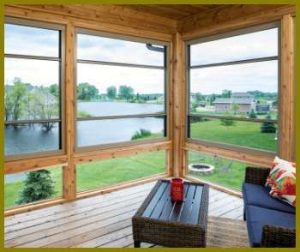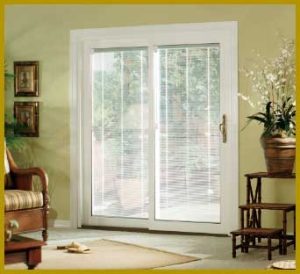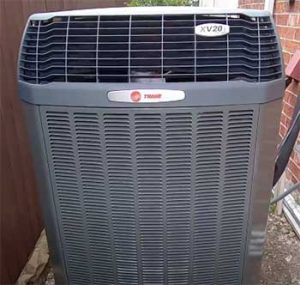In the realm of decking, two names stand out: Fiberglass and Trex. Each offers a unique blend of attributes, promising durability, aesthetics, and value. The decision, however, can be a tough one.
But fear not, homeowner; this comprehensive comparison will help you navigate the ins and outs of fiberglass and Trex decking to make a well-informed decision. So, let’s dive in!
A Brief Comparison Table
| Fiberglass Decking | Trex Decking | |
| Durability | Excellent | Very Good |
| Maintenance | Low | Low |
| Aesthetic Variety | High | High |
| Cost | High initial cost | Moderate to High |
| Environmental Impact | Low | Very Low (95% recycled material) |
| Heat Retention | Low | High |
| Resistance to Damage | Excellent | Good |
| Lifespan | Over 20 years | 25-30 years |
| Slippery When Wet | Yes (depends on finish) | No |
| Scratch Resistance | Very Good | Moderate |
Pros and Cons of Fiberglass Decking
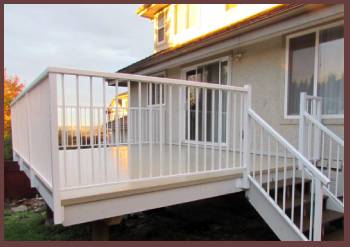
Fiberglass decking, known for its strength and durability, offers a different kind of charm. Let’s explore the advantages and potential drawbacks of this option.
Pros of Fiberglass Decking
- Durability
First and foremost, fiberglass decks are incredibly durable. This material is resistant to many elements that can be destructive to other types of decking, including moisture, insects, and even fire. They are also less prone to warping, cracking, and splintering, making them a long-lasting choice.
- Low Maintenance
Fiberglass decks require minimal maintenance. You won’t have to worry about yearly staining or sealing like you would with a wooden deck. Generally, a good cleaning once or twice a year is all that’s needed to keep your deck looking fresh.
- Versatility
Fiberglass decks can be made to imitate the look of various other materials, such as wood or stone, giving you more options for coordinating with your home’s aesthetic.
Cons of Fiberglass Decking
- Cost
Fiberglass decks can be more expensive upfront than other types of decking. However, the reduced maintenance cost can offset this initial investment over time.
- Slippery When Wet
Depending on the finish, fiberglass decks can become quite slippery when wet, posing a potential safety hazard.
Read More: About Aqualok Flooring
Pros and Cons of Trex Decking
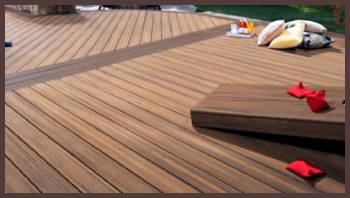
Trex, a pioneer in the world of composite decking, also comes with its share of pros and cons.
Pros of Trex Decking
- Environmentally Friendly
Trex is made from 95% recycled materials, making it a great option for environmentally conscious homeowners.
- Variety
Trex decking comes in a wide range of colors and finishes, allowing you to find the perfect fit for your home’s exterior.
- Resistant to Damage
Trex decks are resistant to common issues like rot, mildew, and insects. They are also less likely to fade in the sun compared to natural wood.
Cons of Trex Decking
- Heat Retention
Trex decking can become quite hot in the summer, especially in darker colors. This can make the deck uncomfortable to walk on in bare feet.
- Scratches
Although Trex is quite durable, it can scratch more easily than some other decking materials. These scratches can be noticeable, especially on darker decks.
Comparing Fiberglass Deck and Trex
Overall, both fiberglass and Trex decking are excellent choices. They both offer durability, variety, and lower maintenance than traditional wood. However, your final decision might come down to personal preferences, budget, and environmental considerations.
Frequently Asked Questions (FAQs)
Yes, fiberglass decking is an excellent choice due to its durability, low maintenance requirements, and versatility in design.
“Better” is subjective and depends on your specific needs. While Trex is an excellent choice, some homeowners prefer fiberglass for its superior durability and fire resistance.
No, Trex is not made of fiberglass. It’s a composite material made mostly from recycled wood and plastic.
With proper care and maintenance, a fiberglass deck can last over 20 years.
The best type of decking depends on your specific needs, budget, and aesthetic preferences. Fiberglass and Trex are both excellent choices known for their durability and low maintenance.
Fiberglass is often considered one of the most durable decking materials due to its resistance to various damaging elements. However, composite materials like Trex also offer impressive durability.
Read More: About Differences Between Carpet And Tile in Bedroom
The Final Verdict
Choosing between Fiberglass Deck and Trex boils down to individual requirements and preferences. If durability, fire resistance, and a more traditional aesthetic are high on your priority list, Fiberglass might be the best fit for you. On the other hand, if you’re an eco-conscious homeowner who values a variety of color options and a wood-like appearance, Trex could be the right choice.
Remember, both Fiberglass and Trex offer high-quality decking solutions that outperform many traditional options. They resist common deck problems, require less maintenance, and ultimately offer excellent long-term value. The choice, then, isn’t about settling for less; it’s about identifying the specific advantages that align best with your decking dreams. Happy deck building!

